Curse of the Lionesses: what’s causing spate of England women’s football injuries?
Several key players are out of the World Cup, raising concerns about hectic schedules, sub-par pitches and sexism
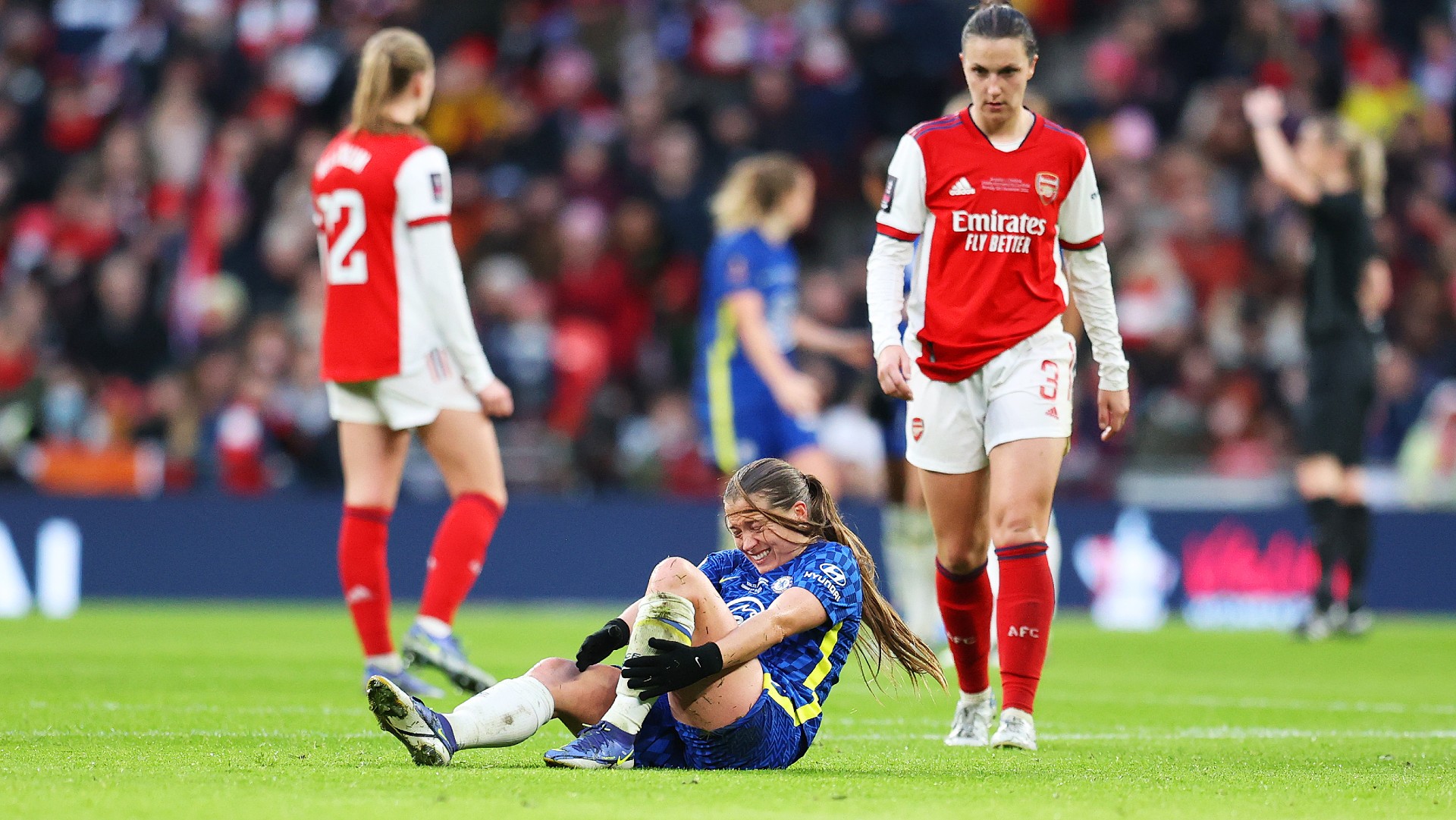
A free daily email with the biggest news stories of the day – and the best features from TheWeek.com
You are now subscribed
Your newsletter sign-up was successful
The England women’s football team has suffered a spate of serious injuries, ruling several key players out of the World Cup and raising further health concerns amid hectic schedules and male-focused medical research.
Chelsea announced this week that their key midfielder Fran Kirby will miss the tournament and undergo knee surgery. This adds to the “already lengthy list of absentees” in the Lionesses’ squad for this summer’s tournament in Australia and New Zealand, said The Times, many of whom were instrumental in last summer’s Euro 2022 triumph.
“An injury crisis is threatening to derail the Lionesses’ dream of winning the World Cup this summer,” said the Evening Standard, with Leah Williamson, the captain, ruled out and star forward Beth Mead unlikely to recover in time, among other injuries.
The Week
Escape your echo chamber. Get the facts behind the news, plus analysis from multiple perspectives.

Sign up for The Week's Free Newsletters
From our morning news briefing to a weekly Good News Newsletter, get the best of The Week delivered directly to your inbox.
From our morning news briefing to a weekly Good News Newsletter, get the best of The Week delivered directly to your inbox.
The Lionesses are one of the favourites to win the competition, with odds of around 4/1, and will open their campaign against Haiti in Brisbane on 22 July.
Who has been injured?
Kirby, 29, was injured during a Continental Cup match against West Ham in February and hasn’t played since despite extensive treatment. She missed most of the 2019-20 season with other health issues, including pericarditis (inflammation of the heart lining) and fatigue.
Williamson, the influential England captain and central defender, suffered a serious knee ligament injury in April, “limping out of Arsenal’s Women’s Super League [WSL] clash against Manchester United”, said the Daily Mail, and will also miss the World Cup.
“Arsenal boss Jonas Eidevall pointed the blame at United’s pitch at Leigh Sports Village”, said the i news site. “I think it’s going to continue here with the schedule we have and pitches like that, players are going to get injured,” he said.
A free daily email with the biggest news stories of the day – and the best features from TheWeek.com
The number of matches played at the United women’s team home stadium “has become contentious amid growing fears about the number of serious injuries in the WSL and in the wider women’s game”, said the i news site. The women’s sides are not permitted to play at the men’s stadiums, where pitches generally have better quality surfaces, due to scheduling conflicts and fears of lower attendance.
Why are women suffering so many knee injuries?
Williamson’s Arsenal and England team-mate Beth Mead suffered a similar knee injury in November. Head coach and England manager Sarina Wiegman has said it would take “a miracle” for her to be able to play in the World Cup.
England right-back Lucy Bronze also underwent knee surgery last week after the 31-year-old was injured playing for Barcelona in their 1-0 Champions League win over Chelsea on 22 April, “casting doubt on whether she will be able to play in showpiece later this year”, according to The Telegraph. Millie Bright, centre-back and vice-captain, has also recently undergone knee surgery, but still hopes to play at the World Cup.
“Female players are still suffering knee ligament injuries in worrying numbers,” wrote Suzanne Wrack in The Guardian back in 2020. Women, Wrack said then, appeared to be four to six times more likely to suffer an ACL [anterior cruciate ligament] injury than male footballers, according to research.
“Traditionally, a lot of the research was done on males,” Dr Andrew Greene, a senior lecture in sport at the University of Roehampton, told The Guardian, “and the transferability is hard because the two different populations are quite distinct.”
Most boots are designed for men
“Pitches are only one factor,” said the i news site, “with the majority of sports science and strength and conditioning research having been conducted on male bodies.” Most football boots are designed for men, despite “significant physiological differences in female athletes”.
When she won BBC Sports Personality of the Year, Mead questioned the dearth of research into why female players suffer so many knee injuries. “I think if that happened with a Messi, a Ronaldo, a Griezmann, there’s probably going to be a lot more done,” she said.
There are also concerns over the intensity of the women’s schedules, with only a two-week break after the World Cup before the new WSL campaign starts, and a new Uefa Women’s Nations League also begins next season.
Considering the growing number of serious injuries, it was “alarming” that Fifa, the world governing body, did not consult the leagues or players before adding a new Club World Cup to the schedule too, wrote Sweden and Chelsea defender Magda Eriksson for i news in December. “If you just add more and more games, there’ll come a time when it just becomes too much,” she said.
Few of the women’s clubs have the resources for medical monitoring and physios, Eriksson said. “I wonder whether women players might be less fragile if we’d received better medical attention early in our careers.”
Harriet Marsden is a senior staff writer and podcast panellist for The Week, covering world news and writing the weekly Global Digest newsletter. Before joining the site in 2023, she was a freelance journalist for seven years, working for The Guardian, The Times and The Independent among others, and regularly appearing on radio shows. In 2021, she was awarded the “journalist-at-large” fellowship by the Local Trust charity, and spent a year travelling independently to some of England’s most deprived areas to write about community activism. She has a master’s in international journalism from City University, and has also worked in Bolivia, Colombia and Spain.
-
 The environmental cost of GLP-1s
The environmental cost of GLP-1sThe explainer Producing the drugs is a dirty process
-
 Greenland’s capital becomes ground zero for the country’s diplomatic straits
Greenland’s capital becomes ground zero for the country’s diplomatic straitsIN THE SPOTLIGHT A flurry of new consular activity in Nuuk shows how important Greenland has become to Europeans’ anxiety about American imperialism
-
 ‘This is something that happens all too often’
‘This is something that happens all too often’Instant Opinion Opinion, comment and editorials of the day
-
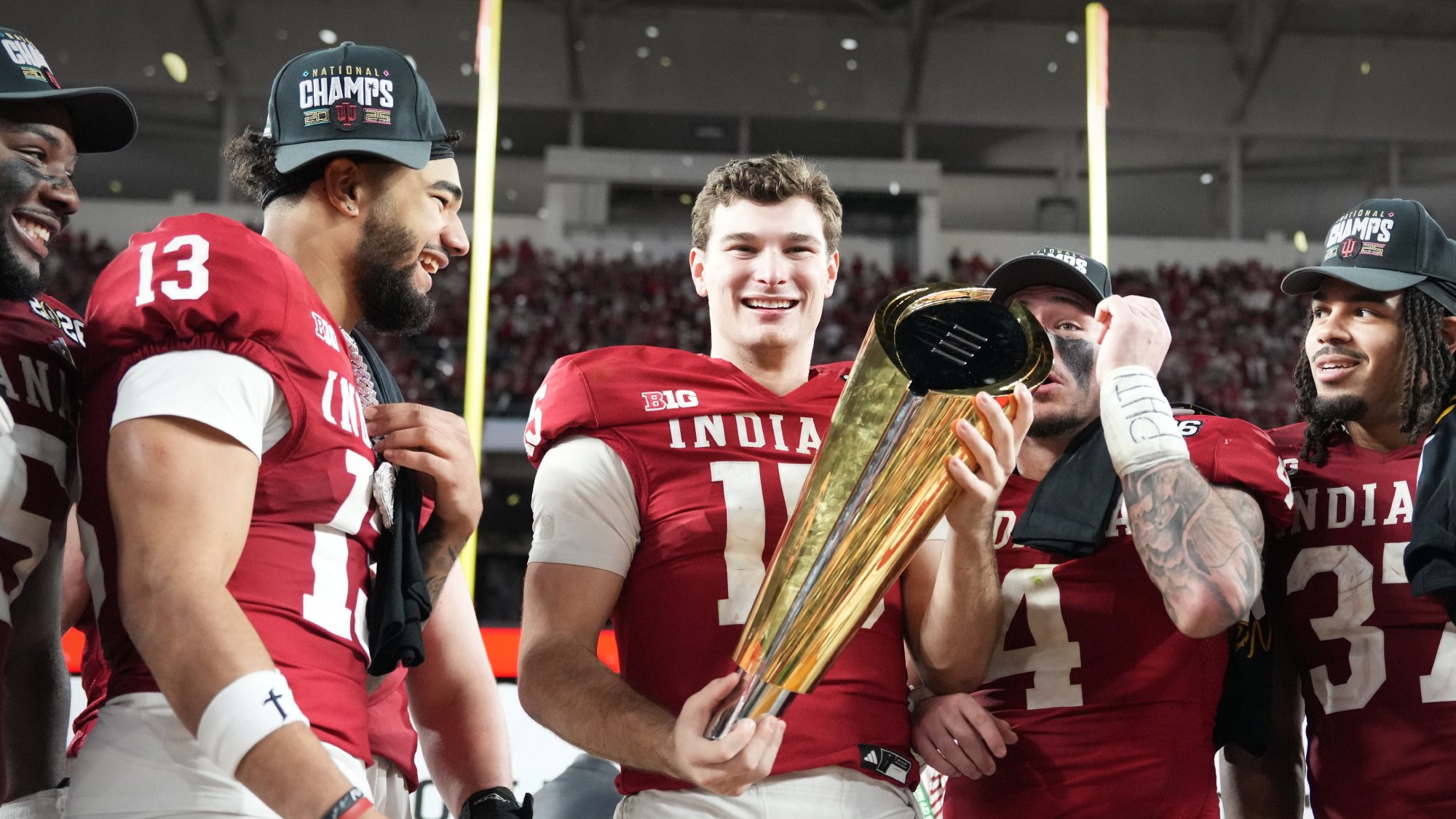 Indiana beats Miami for college football title
Indiana beats Miami for college football titleSpeed Read The victory completed Indiana’s unbeaten season
-
 Who is to blame for Maccabi Tel Aviv fan-ban blunder?
Who is to blame for Maccabi Tel Aviv fan-ban blunder?Today’s Big Question MPs call for resignation of West Midlands Police chief constable over ‘dodgy’ justification of ban from Aston Villa match, but role of Birmingham Safety Advisory Group also under scrutiny
-
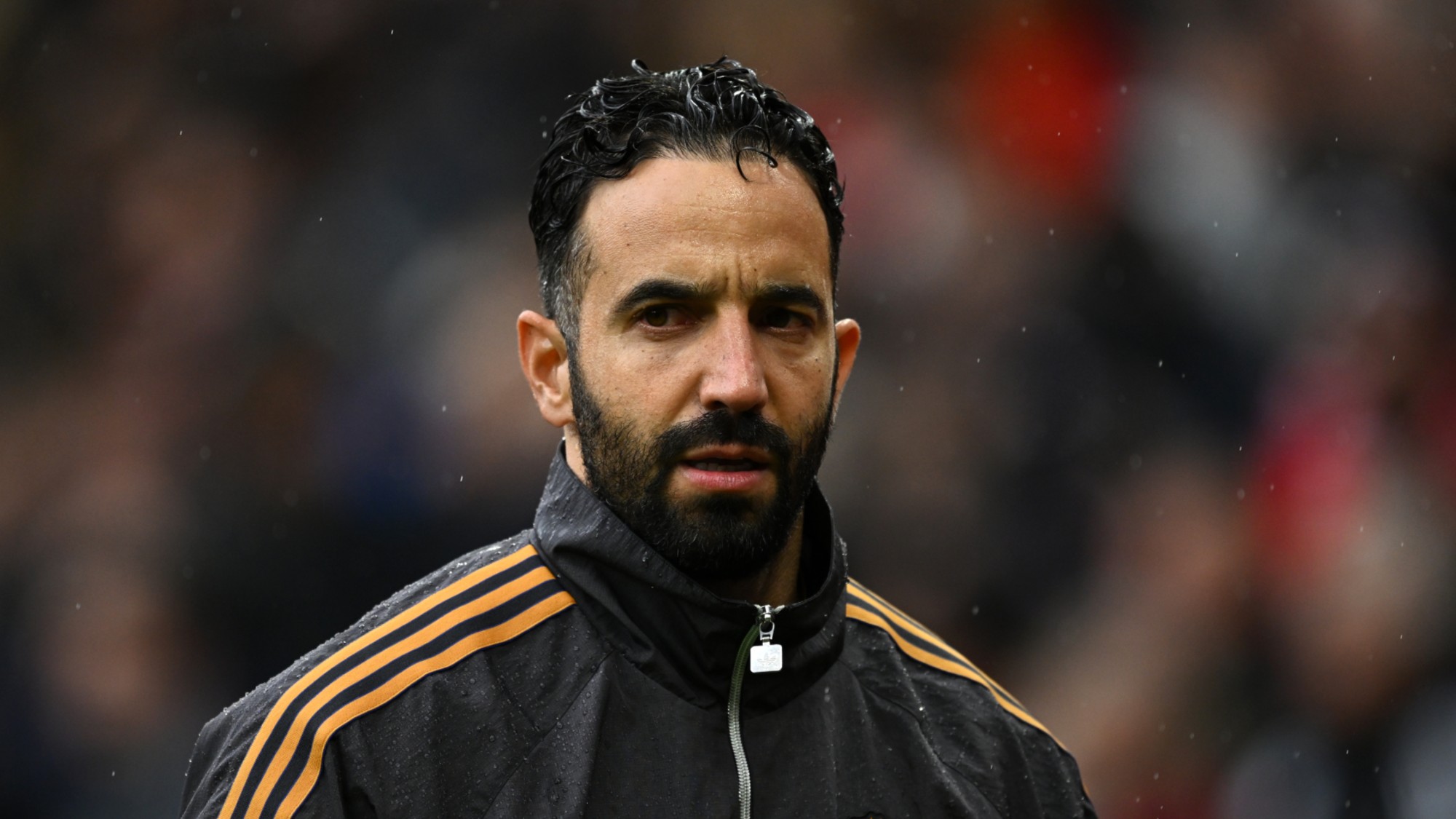 Amorim follows Maresca out of Premier League after ‘awful’ season
Amorim follows Maresca out of Premier League after ‘awful’ seasonIn the Spotlight Manchester United head coach sacked after dismal results and outburst against leadership, echoing comments by Chelsea boss when he quit last week
-
 Coaches’ salary buyouts are generating questions for colleges
Coaches’ salary buyouts are generating questions for collegesUnder the Radar ‘The math doesn’t seem to math,’ one expert said
-
 Five years after his death, Diego Maradona’s family demand justice
Five years after his death, Diego Maradona’s family demand justiceIn the Spotlight Argentine football legend’s medical team accused of negligent homicide and will stand trial – again – next year
-
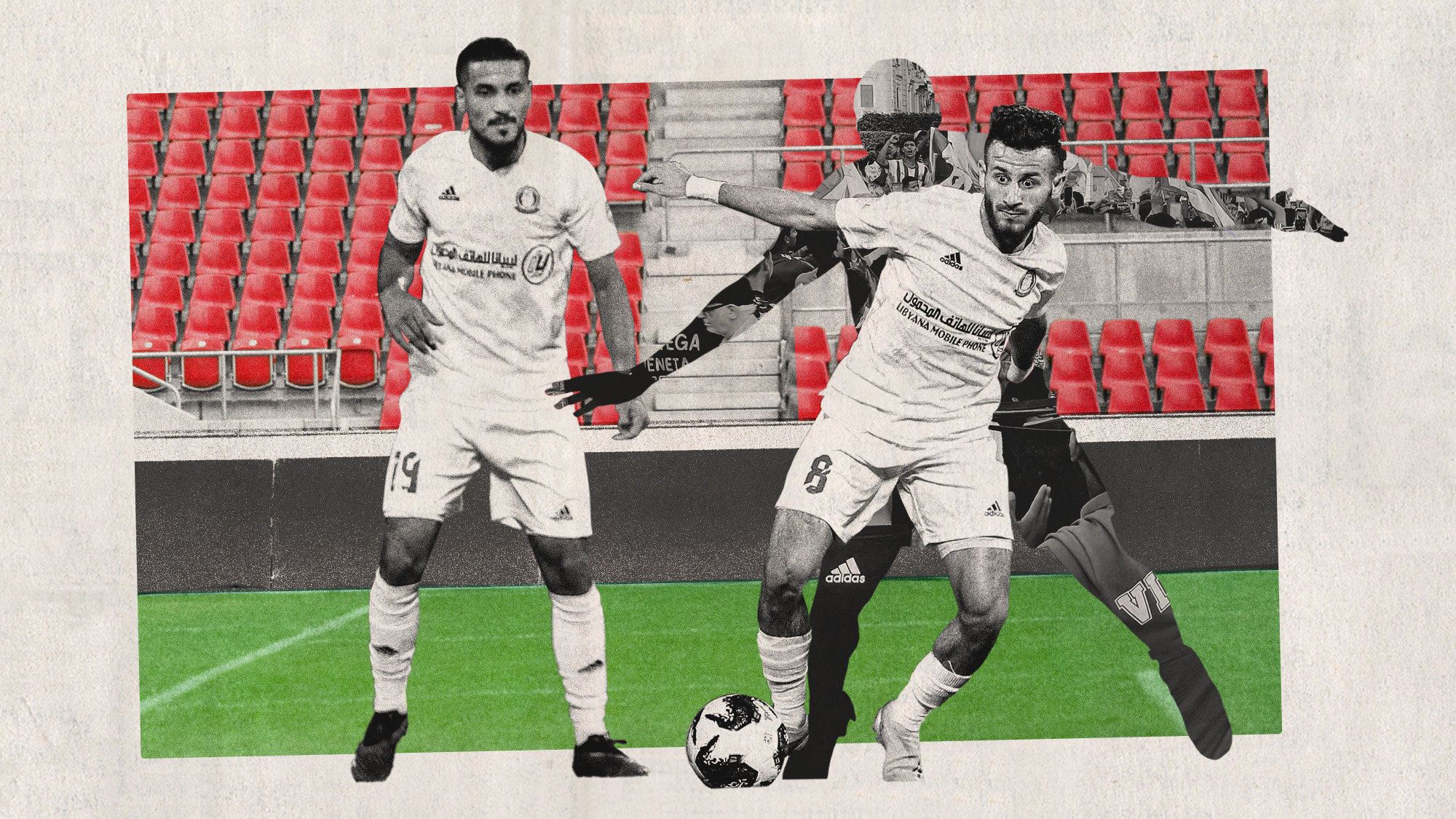 Libya's 'curious' football cup, played in Italy to empty stadiums
Libya's 'curious' football cup, played in Italy to empty stadiumsUnder The Radar 'Curious collaboration' saw Al-Ahli Tripoli crowned league champions in Milan before a handful of spectators
-
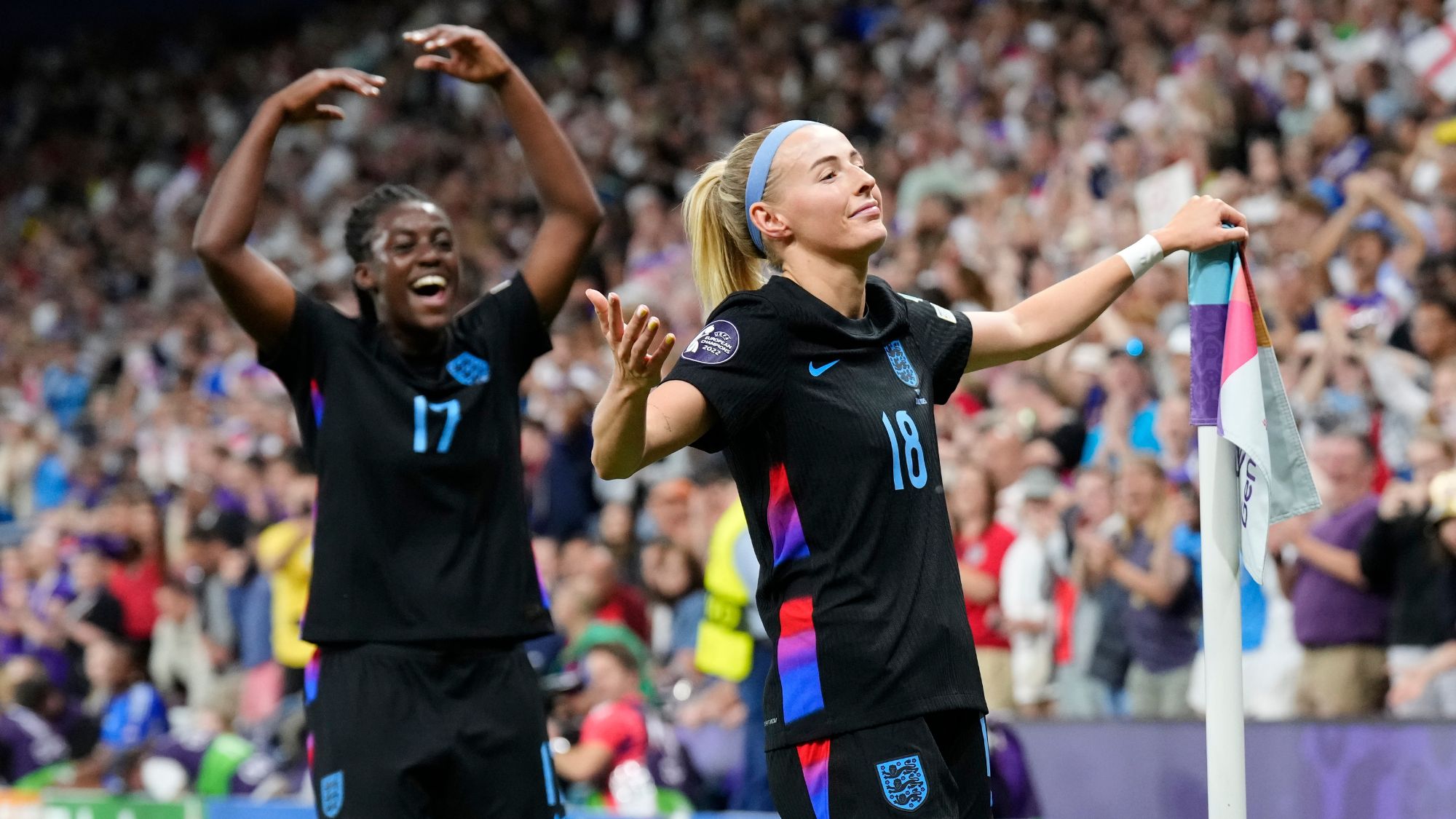 Crisis? What crisis? How Lionesses made the Euros final against the odds
Crisis? What crisis? How Lionesses made the Euros final against the oddsAmid injuries and questions about form, England's women are one step away from glory
-
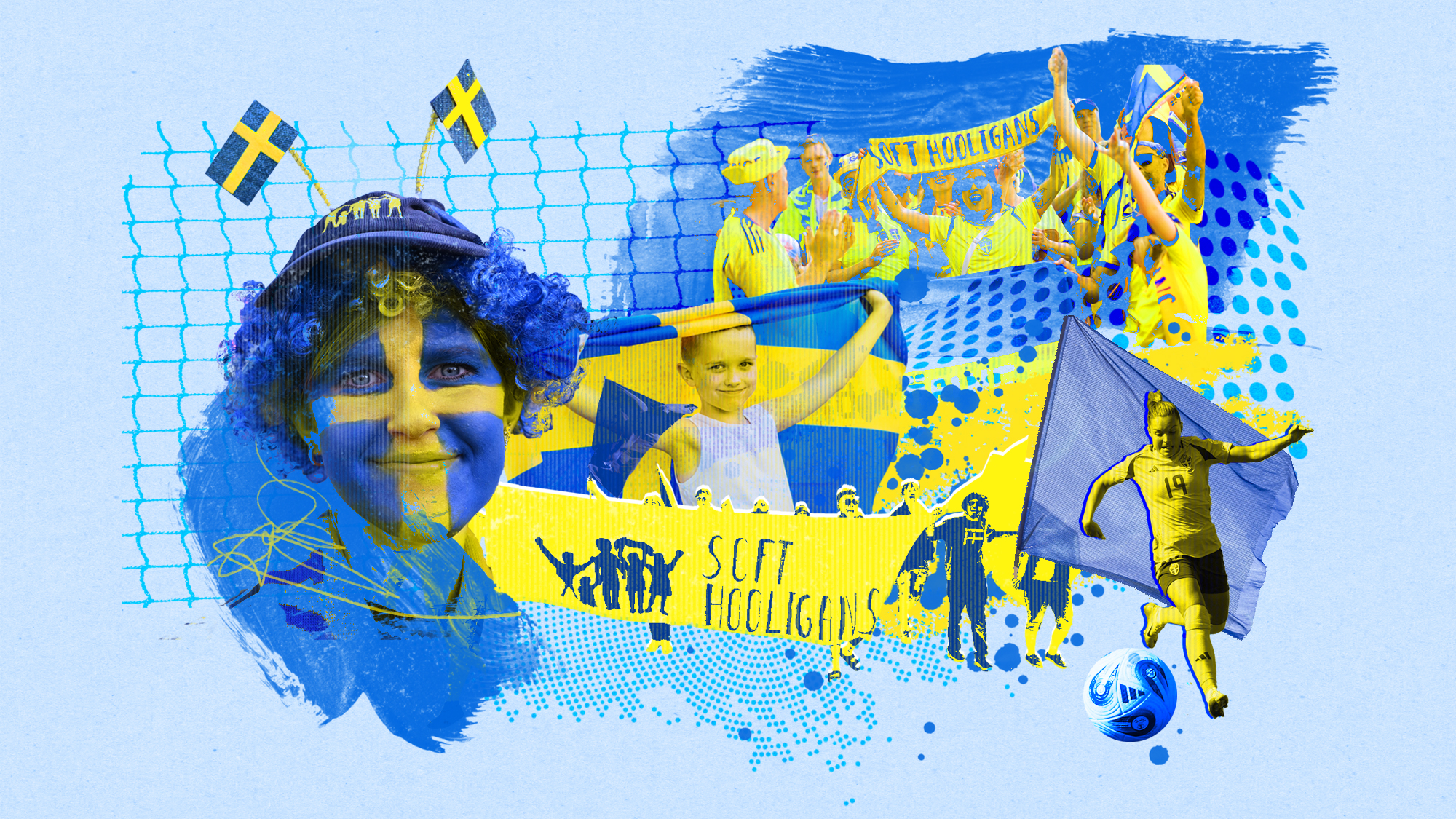 Sweden's Soft Hooligans: the fans who brought 'good vibes' to the Euros
Sweden's Soft Hooligans: the fans who brought 'good vibes' to the EurosUnder the Radar Formed to create a fun fan atmosphere, the Swedish football supporter group has been bringing the party to the championship